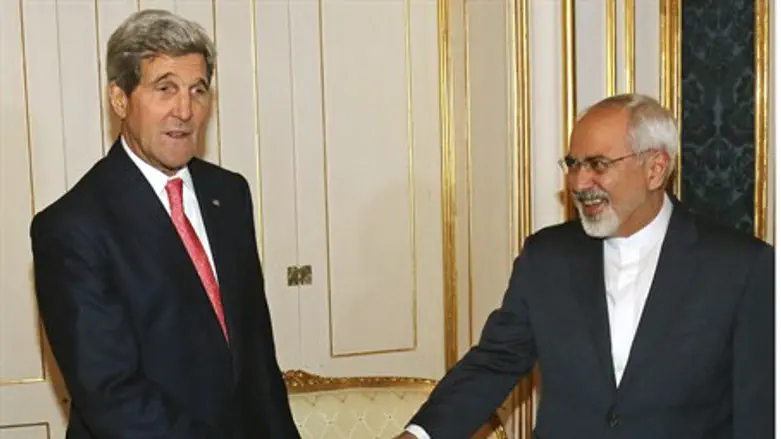
After extending a July 20 deadline, it looks like talks between world nations and Iran over the Islamic regime's nuclear program will be extended yet again on Monday, as the November 24 deadline is set to come and go.
According to a source close to the talks who spoke with Reuters, the talks are likely to be adjourned on Monday and reconvened next month, as the sides failed to reach an agreement following on an interim deal last November that eased sanctions.
The precise details of how the extension will occur have yet to be finalized, but the source said there would be no new sanctions relief for Iran accompanying the extension. He added that talks may continue in Vienna, or be moved to Oman.
"Some progress has been made," a diplomat involved in the talks told the news source. "But we need to discuss some issues with our capitals. We will meet again before the new year. This is an ongoing process."
The announcements support previous reports on Sunday which indicated US Secretary of State John Kerry had offered Iran an extension. That came after Kerry last Thursday said there were no discussions on an extension.
Also adding to the foreboding that the US would once again show a weak hand and drag out the Iran talks as the Islamic republic continues to enrich uranium were reports Monday from Saudi Arabia, which claimed US President Barack Obama was pushing the country to make rapprochement with its rival Iran to better the chances of a nuclear deal.
Forty-three US Senators last Wednesday wrote to Obama expressing their alarm at reports he intends to bypass the Congress and force through a deal with Iran, fears which are heightened by revelations from the International Atomic Energy Agency (IAEA) showing Iran is not abiding by interim conditions in refusing to answer questions on the military aspects of its nuclear program.
In the talks Iran is demanding to retain enough centrifuges to build 38 atomic bombs every year, a proposition raising fears of a regional nuclear arms race with such countries as Saudi Arabia, which could turn to Sunni allies such as Pakistan for nuclear weapons capabilities.
On Sunday, Iranian hardliners demonstrated in front of a nuclear reactor protesting the nuclear talks, shouting "Death to America" and claiming nuclear power is a "right" for the Islamic regime, which has threatened to destroy Israel.
